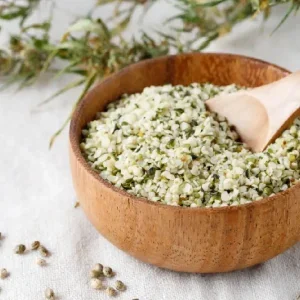A Global Health Crisis
Diabetes is a chronic disease which occur in the body when the blood sugar or blood glucose levels are too high. According to statistics, there was a total of 425 million adults with diabetes worldwide in 2017. And the incidence rate was as high as 8.8% (from 20 to 79 years old). It is predicted that the diabetes population will further grow in the next 30 years. By 2045, it will amount to a total of 629 million globally. with around 35% in the US and 16% in Europe. China is predicted to be around 48%. In 2017, the global diabetes market reached a total of $68.9 billion with a compound annual growth rate of 7.4%. It is predicted that this behemoth will further increase to $90.7 billion in 2022 and $137.7 billion in 2028.
The global diabetic market is majorly driven by increasing number of diabetic population. According to research, smoking increases the possibility of diabetes; more than 60% of the global population smokes, this has increased the risk of diabetes and contributed to the growth of the market. Moreover, increasing obese population, increasing healthcare expenditure, and strong encouragement from the government have also contributed to the growth of the market.
Anti-Diabetic Ingredients
Years of research has been dedicated to determining the anti-diabetic potential of various ingredients. Several ingredients have demonstrated positive health effects associated with diabetes management.
1.Lutein
Lutein appears to be a possible treatment for several diabetic conditions including retinopathy and encephalopathy. Preliminary studies of animals showed promise as to lutein’s role as an antioxidant in diabetic treatment for these conditions. It may help balance blood sugar and glutathione levels and may even improve the effects of insulin.
2. Gamma Oryzanol
It is proven that oryzanol has protecting effects on oxidative stress (responsible for diabetes) and hyperglycemia. In a study conducted by Nirma University in India, oryzanol has been found to have protective effect on hyperglycemia-induced thermal hyperalgesia and oxidative stress which might be responsible for diabetes induced nerve damage or the disease called Diabetes Neuropathy. The findings indicate that oryzanol possesses the potential to effectively produce a reduction in blood glucose levels.
3. Omega-3 Fatty Acids
There is evidence for the role of omega-3 fatty acids in insulin resistance and diabetes, as other studies have shown similar effects of fish oil on insulin resistance in obese rats as well as in humans. Omega-3 fatty acids help prevent glucose intolerance and have anti-inflammatory properties.
4. Vitamin E
The body’s premium fat-soluble antioxidant, Vitamin E, improves glucose control and protects blood vessels and nerves from free radical damage which is accelerated by diabetes. This makes it one of the best vitamins for diabetics. Studies have shown that high doses of supplemental vitamin E may even reverse damage to nerves caused by diabetes and protect against diabetic cataracts and atherosclerosis.
5. Beta-glucans
Beta-glucans are sugars that are found in the cell walls of bacteria, fungi, yeasts, algae, lichens, and plants, such as oats and barley. Beta-glucans might lower blood cholesterol by preventing the absorption of cholesterol from food in the stomach and intestines, when it is taken by mouth. Management of diabetes includes: control of blood glucose level and lipids; and reduction of hypertension.
6. Ginseng Extract
Korean Ginseng contains thirteen different ginsenosides. One of them, Panaxans helps to lower blood sugar. The polysaccharide enhances immune system and its antioxidant property is to protect the body from illness, disease and stress. Ginseng saponins also stimulate the production of insulin. In elderly patients with hyperglycemia, the saponins reduced serum glucose
7. Evening Primrose Extract
Evening primrose extract has inhibitory efficacy on α- amylase and α-glucosidase. One of Japanese pharmaceuticals performed a trial on the efficacy of tablet containing evening primrose extract for 12 weeks on 44 male subjects. After taking the tablets for 12 weeks, fasting blood glucose levels were significantly lowered and HbA1c value was also decreased.
8. Cinnamon Extract
A study published recently in the Journal of the Academy of Nutrition and Dietetics suggests that cinnamon can help control post-meal blood sugar spikes. Earlier research found that consuming cinnamon reduced LDL ("bad") cholesterol levels in participants by 26% and cut blood sugar levels by 29%. A substance isolated from cinnamon has been called the “insulin potentiating factor (IPF).” It means that this compound is able to increase the activity of insulin, which underscores the cinnamon diabetes type 2 connection.
9. Green Tea Extract
Consistent studies have revealed that Green Tea is anti-carcinogenic, anti-diabetic, anti-depressant and it also fights bad breath, controls bad cholesterol etc. In 2004, a study on effects of Green Tea on Blood Glucose levels, conducted by a group of Japanese researchers concluded that healthy human volunteers who consumed Green Tea displayed stimulation of 1.5g/body during the glucose tolerance test. Green Tea miraculously lowered the blood glucose levels of diabetic mice. How does this happen? – Green Tea obstructs the enzyme amylase that is secreted by the salivary glands, thus lowering the rate at which the sugar in the starches is released in the blood. This requires lesser amount of insulin to transport the glucose in the blood and this is how Green Tea curbs the release of large amounts of insulin.
10. Vitamin B3
Vitamin B3 is well-known for its capabilities to treat high blood sugar levels and symptoms of diabetes. A majority of diabetics are able to effectively regulate HBAIC levels with the assistance of vitamin B3.
11. Biotin
Biotin has been seen to help with better blood sugar levels control in research studies, especially when combined with the mineral Chromium.
12. Vitamin D
Doctors believe that there is an unmistakable link between vitamin D and diabetes. This is because studies have conclusively indicated that people with low levels of vitamin D are at a higher risk of developing diabetes, later in life. Researchers believe that treatment of vitamin D deficiency can prevent and treat diabetes. The role of vitamin D in diabetes was proved in a study where 92 adults at high risk of getting type 2 diabetes were given short term vitamin D supplementation. It improved the functioning of beta cells of the pancreas and helped control blood sugar levels.
Diabetes is a dietary disorder that is reversible with the help of a healthy, holistic diet, an active lifestyle and a positive mental outlook. So, it’s necessary to consume a healthy diet and absorb proper nutrition from healthy supplements.
Concerning the above ingredients, Kangcare Bioindustry occupies high quality Gamma Oryzanol, Lutein, Vitamins and Plant Extracts, with comprehensive specifications and professional knowledge. If you are interested in using the above ingredients in your products, Kangcare is at your disposal for further information.






